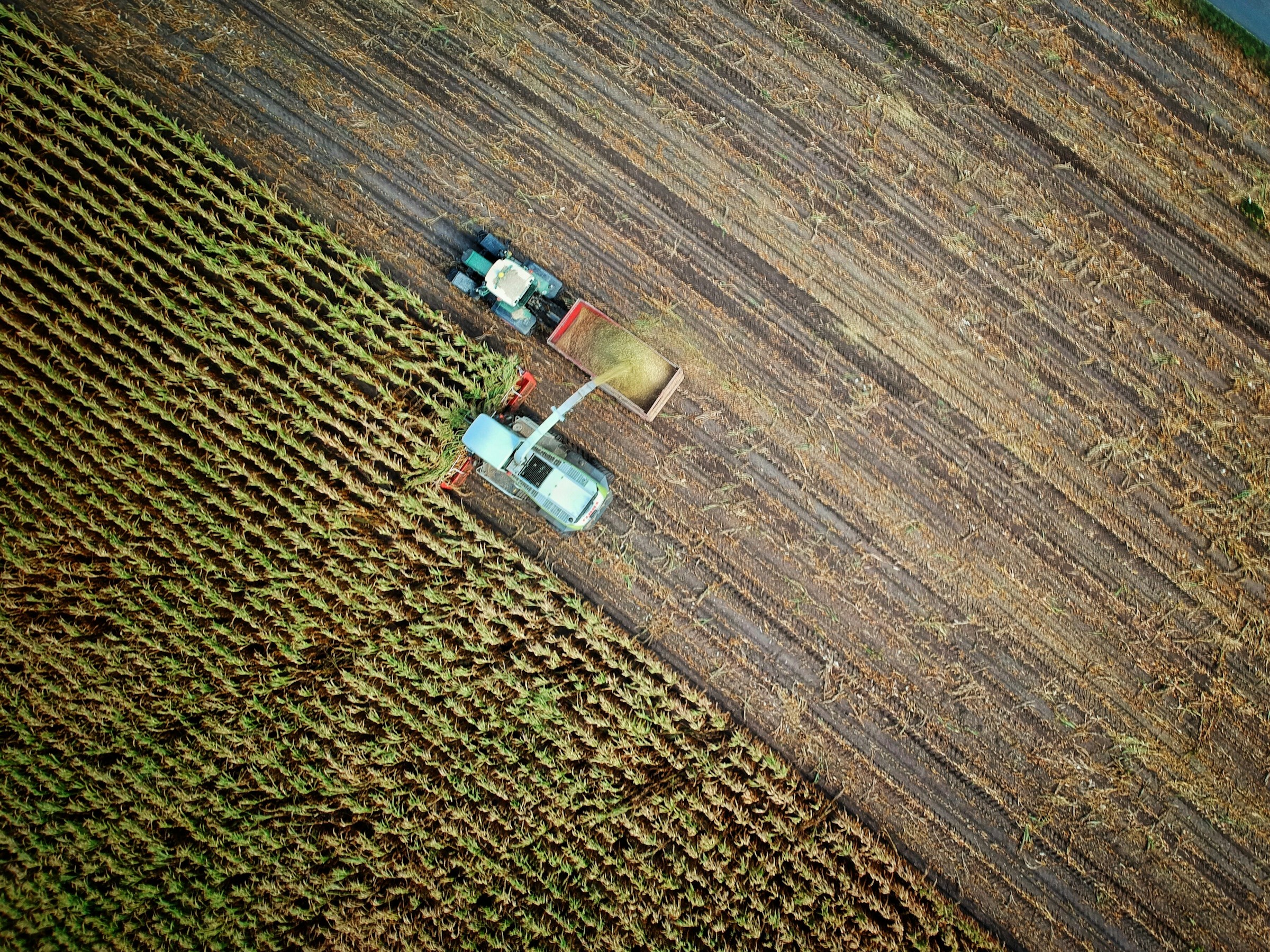How Are AI-Enhanced Tools Shaping the Future of Precision Agriculture in the UK?

In a world where everyone is racing towards technological advancements and automation, the agricultural industry is not left behind. The role of data-driven agriculture, coupled with Artificial Intelligence (AI), is swiftly gaining ground. More farmers are now using AI-enhanced tools for precision farming to increase productivity while being sustainable.
This article provides an in-depth look at how AI-enhanced tools are shaping the future of precision agriculture in the UK. It will dive into different aspects such as crop and soil management, market monitoring, and the overall impact on the agricultural industry.
In the same genre : What Breakthroughs in Solid-State Batteries Could Mean for Future Electric Vehicles?
The Emergence of Precision Farming and AI Technologies in Agriculture
The evolution of technology has seen various sectors adapt to the changing times, and agriculture is no exception. Precision farming is now a common term in the agricultural industry. It is the practice of managing crops at a micro level to ensure maximum productivity and efficiency. The application of AI technologies and data is revolutionizing the entire agricultural sector.
In the UK, the farming industry has embraced AI-enhanced tools for precision farming, showing notable advancements. Farmers are now using data-driven technologies to monitor their crop and soil conditions, predict market trends, and manage their farming practices efficiently. This progression has resulted in substantial improvements in crop yield, cost-effectiveness, and sustainability.
This might interest you : How Can Real-Time Analytics Optimize Energy Consumption in Smart Buildings?
Data-Driven Technologies and Crop Management
At the core of precision farming lies sophisticated data-driven technologies. These technologies are being used to collect, analyze, and interpret a vast range of data. As a result, farmers are now able to make informed decisions about crop management.
For instance, AI-enhanced tools allow for real-time monitoring of crop health. Using images captured by drones or satellites, these tools can identify potential diseases or pest infestations. This enables farmers to take immediate action, thus saving time and reducing potential losses.
Beyond monitoring, these tools also help in crop planning and yield prediction. By analyzing historical and real-time data, they can provide farmers with insights on the optimal time to plant, harvest, and sell their crops.
Soil Management and Monitoring Systems
In addition to crop management, precision farming also involves detailed soil analysis. AI-enhanced tools are providing farmers with more accurate and timely information about their soil conditions. This in turn helps them to optimize their farming practices.
These technologies can measure a variety of soil parameters such as moisture, nutrient content, and pH levels. Based on this data, farmers can adjust their irrigation practices, decide on the appropriate fertilizers, and determine the best crop rotation strategies.
With the help of AI-enhanced tools, farmers can also monitor soil health over time. This is particularly useful in identifying trends and predicting future soil conditions. Consequently, it leads to a more efficient management of resources and a significant increase in farm productivity.
Market Monitoring and Predictive Analysis
Understanding market trends and consumer demands is critical for any business, and agriculture is no exception. AI-enhanced tools are now being used to monitor agricultural markets, providing farmers with crucial insights that can influence their farming decisions.
By analyzing data from sources like weather forecasts, commodity prices, and consumer trends, these tools can predict future market conditions. This enables farmers to plan their crop production more effectively and to maximize their profits.
Moreover, these technologies also help in managing supply chains. They provide real-time tracking of products from the farm to the consumer. This not only ensures the quality of the products but also helps in reducing waste and improving efficiency.
Impact on the Agricultural Industry
The impact of AI-enhanced tools on the agricultural industry is undeniable. Precision farming, powered by these tools, has ushered in a new era of efficiency and sustainability in agriculture.
Farmers are now able to manage their farms more effectively, resulting in increased productivity and reduced costs. They can also make better-informed decisions, thanks to the vast amount of data at their disposal.
Moreover, these technological advancements are contributing to environmental sustainability. Precision farming practices lead to a more efficient use of resources, reducing the industry’s environmental footprint.
In conclusion, the future of agriculture in the UK looks promising, thanks to AI-enhanced tools. As more farmers adopt these technologies, the benefits of precision farming will become even more apparent. The agricultural industry is set for a revolution, and AI is at the helm of this change.
The Integration of Machine Learning in Precision Agriculture
Incorporating machine learning into precision agriculture has been a game changer for the farming community in the UK. Machine learning, a subset of AI, is a system where computer algorithms are used to autonomously learn from data and information. In the context of precision farming, machine learning algorithms are designed to learn from a wide array of agronomic data.
The application of machine learning in precision farming can be seen in various aspects such as variable rate applications, remote sensing, and computer vision. Variable rate technology is being widely used to apply inputs such as fertilisers and pesticides in a more efficient and sustainable manner. This technology uses GPS data to apply these inputs at variable rates across a field, taking into account factors like soil fertility and pest presence.
Remote sensing technology, on the other hand, uses drones and satellites to capture high-resolution data about the farm. This data, coupled with machine learning algorithms, can help farmers make real-time decisions about irrigation, fertilisation, and other farming practices.
Computer vision, another application of machine learning, is being used to monitor crop health and detect diseases. By analysing images captured by drones or on-the-ground cameras, these systems can identify diseases or pest attacks much sooner than the human eye.
This integration of machine learning into precision farming not only increases productivity but also makes the entire process more efficient and sustainable. It empowers farmers to make precise, data-driven decisions, leading to improved crop yields and reduced wastage.
Conclusion: The Future of Precision Agriculture in the UK
The advent of AI-enhanced tools in precision agriculture in the UK has indeed revolutionised farming practices. The industry has come a long way from traditional farming techniques to data-driven, smart farming methods. AI and machine learning have emerged as critical components in enhancing decision making, improving efficiency, and boosting productivity.
The integration of AI technologies in farming practices has not only helped farmers increase their crop yields, but it has also resulted in more sustainable and environmentally friendly farming practices. It has allowed for real time monitoring of crop and soil health, thereby enabling immediate intervention when necessary.
Additionally, the predictive analysis offered by AI tools has been instrumental in understanding the farming market trends and consumer demands. This has allowed farmers to plan their crop production accordingly, maximising profits and minimising waste.
Furthermore, the use of AI in managing the supply chain ensures quality control and reduces waste, thus benefitting both the farmer and the consumer. With AI playing a pivotal role in every aspect of the agriculture industry, from crop management to market monitoring, the future of precision agriculture in the UK looks bright.
As the United Kingdom continues to embrace AI-enhanced tools in precision farming, it sets a benchmark for other countries striving towards a more sustainable and efficient agricultural sector. The revolution in the agricultural industry has only just begun, and with advancements in AI and machine learning, the possibilities are endless.
